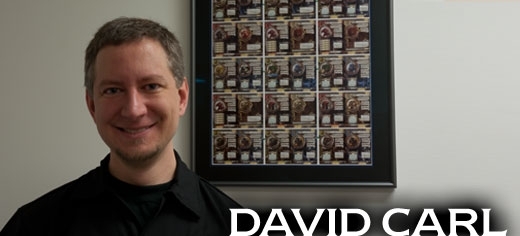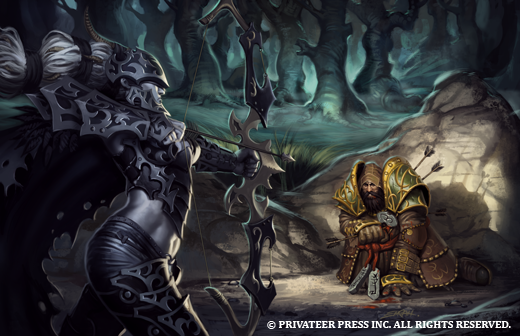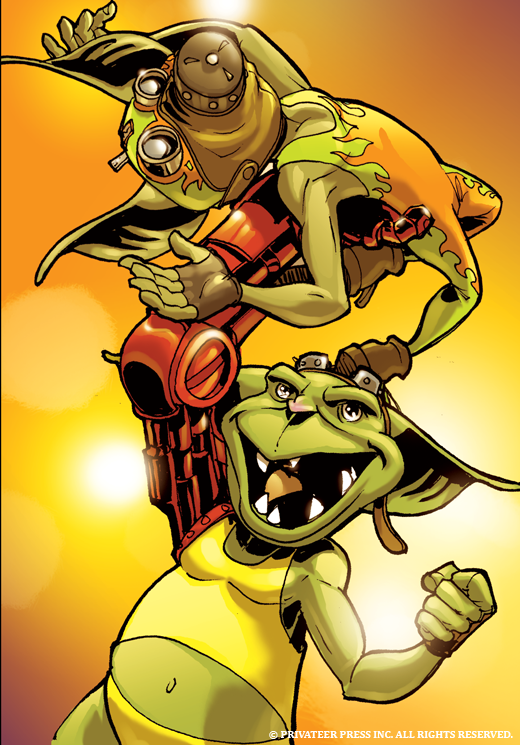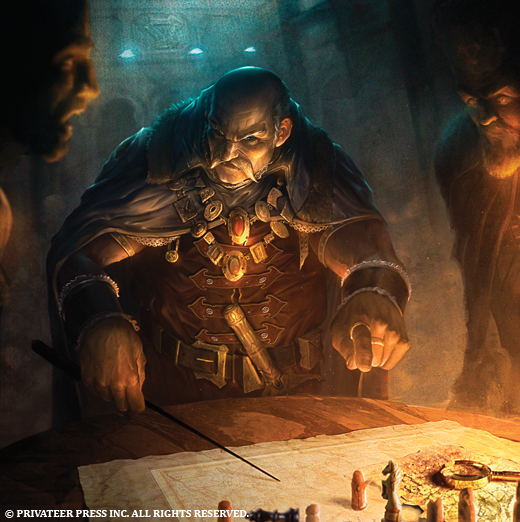
Insider 10-10-2014

Today, I’d like to tackle the topic of community. Gaming communities are an important part of our lives—our favorite game store or game club can begin to feel like a second home, and our hobby can pervade our email inbox, social media pages, and Internet browsing. As important as the WARMACHINE & HORDES community is to our hobby, it’s not something we discuss a whole lot in the abstract. Our opinion of a certain store, forum, or podcast might come up now and then in conversation, but the role we play in our community is a pretty rare topic. Today, I’d like to write about it a bit and hopefully inspire some conversations.
I think we can all agree that a thriving gaming community is important. Such communities give us more potential opponents, more folks to discuss the game with, and introduce us to new ideas and perspectives about our favorite games. No matter how strong a community is, however, it cannot sustain itself indefinitely without new blood. Over time, some folks will leave the community when their work or family or a new relationship shifts their focus away from a game. That attrition means a consistent influx of new players is critical to the long-term health of a game and of that game’s community.
Though it’s been many years since I was one of those new WARMACHINE & HORDES players, I do play a number of other games casually, and I have had the opportunity to be that new player dipping his toe into a gaming community. When you’re in that position, it’s very easy to see what behaviors draw players in and what behaviors push them away.
The first thing I’d like to talk about is perhaps the most obvious: GOOD SPORTSMANSHIP. This includes easy things like introducing yourself at the start of a game and shaking hands at the end, but it also includes a whole lot of more subtle aspects that all boil down to the simple goal of helping your opponent have fun! If you’re the only one having fun, you may very well be turning off a prospective member of your community. Be patient and informative when you explain the models you activate, moves you make, and abilities you use. If you win a game by tricking or trapping your opponent in some way, then you win one game, but you potentially lose in the long run by alienating a new member of your community.

On a related note, it always helps to maintain a POSITIVE OUTLOOK. If you’re constantly bashing an opponent’s models or abilities (whether as worthless or broken), or if you won’t stop complaining about how the dice fall, that’s not going to make someone want to play more games with you. I’m not trying to talk you out of sharing your opinions, but it’s important to be mindful of how you share those opinions. Letting a new member of the gaming community know you prefer some model or unit in a particular role over another is very different from calling models worthless or calling people who play them stupid.

The last thing I want to mention briefly is ACCESSIBILITY. A new player is not going to know every model’s name and abilities much less recognize that model by its abbreviation or its Internet slang. Sure, it takes a little bit longer to say (or type) full names versus abbreviations, but it’s worth the effort to guarantee you’ll be understood.

I’ve recently experienced both the good and the bad sides of these various behaviors of the gaming community. I’ve played opponents with good sportsmanship and helpful dialogue as well as an opponent who took advantage of my lack of experience. I’ve seen gracious players who rolled with the punches and kept cool under pressure as well as those who insulted others’ preferences or got hung up on cursing their luck (or mine). I’ve also read articles and forum posts that were easy to follow and very informative as well as those that looked like someone spewed alphabet soup on my screen.
Most of all, I saw where I could be more accommodating to new members of our community with good sportsmanship, a positive outlook, and both speaking and writing with a focus on accessibility.
Just some newb,
–DC
![]()
